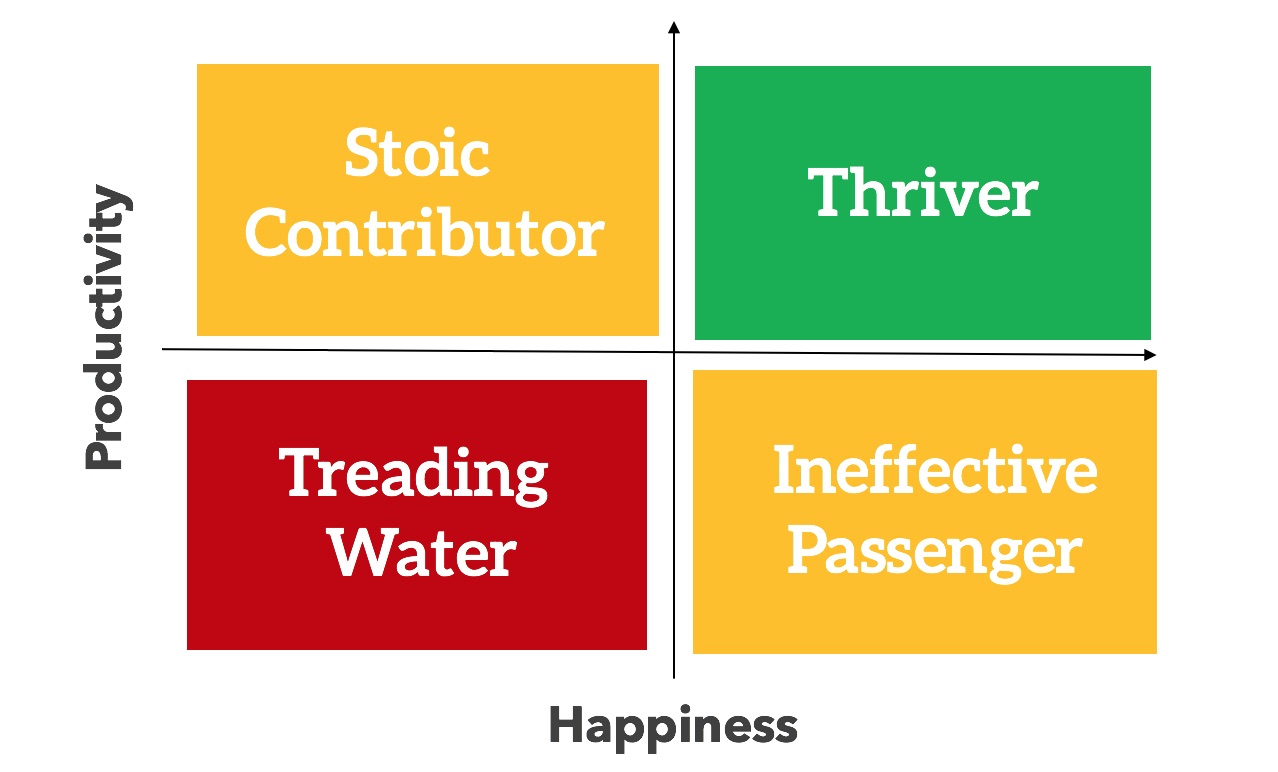They say you can’t put a price on happiness, but an app-based study of UK employees by research company Psychological Technologies (PSYT) has quantified the potential value of happiness has on a business’ bottom line. If every employee in the country was one per cent happier it could in fact add an extra £24 billion to the UK economy per year, boosting the profits of the average company of 10k staff by an extra £7.38 million. With UK productivity stalling and the country facing a ‘significant’ mental health challenge – could a focus on workplace wellbeing hold the key to both?
The study was conducted by Nick Begley, former head of research at Headspace, and Dr. George MacKerron, one of the UK’s leading academic experts in the economics of happiness. While at LSE, MacKerron ran the world’s largest study into momentary happiness, Mappiness, and found from 3.5m data points that the nation’s unhappiest activity, second only to being ill in bed, was working.
To solve this problem, they set up PSYT and built me@mybest – an app designed to better measure and improve psychological wellbeing in the workplace. The company has today launched a crowdfunding campaign to take me@mybest to more businesses around the world and opens with 75 per cent of its target investment.
The study tracked the mood of more than 1,500 employees using a data collection method – now considered to be the gold standard in measuring wellbeing – where respondents are asked to reflect on their wellbeing briefly throughout the day, over a period of four weeks. From more than 56,000 responses, PSYT was able to develop a unique understanding of workplace environments and what creates happier and more productive staff. The data also categorised four ‘tribes’ of workers by their happiness and productivity:
‘Thrivers’ – happy and productive. These are the most engaged workers and interestingly have the the lowest levels of stress of all the groups. They are the greatest advocates of their company and demonstrate the greatest willingness to stay.
‘Stoic Contributors’ – also very productive, but unhappy. Remaining productive while unhappy is difficult and therefore this group are the most stressed, suggesting they could be at risk of burnout and being off on long-term sick leave.
‘Ineffective Passengers’ – happy, but not very productive. They are often loyal to the company and are great advocates, but not the most productive.
‘Treading Water’ – unhappy, unproductive and often highly stressed.
Happiness and the bottom line
According to PSYT’s study, a one per cent increase in happiness equates to a value of £738 per employee p.a. to the average company from productivity gains and staff turnover reductions alone. This is without factoring in the further value likely to arise from reduced absenteeism, increased creativity, collaboration and company advocacy. Applying this to the ten largest UK registered companies by revenue, it is clear that a small increase in happiness could result in large returns:
Name: Potential financial impact per annum of a one per cent increase in employee happiness
BP
£702,000,000
Legal and General Group
£391,000,000
Tesco
£338,000,000
Aviva
£280,000,000
Vodafone Group
£252,000,000
Unilever
£256,000,000
Prudential
£211,000,000
Lloyds Banking Group
£204,000,000
HSBC Holdings
£210,000,000
SSE
£146,000,000
Total
£2,990,000,000
What are the factors that can impact happiness?
The study reveals a person’s own behaviour had a significant impact on happiness, for example:
Exercise – employees exercising three times a week for 20 minutes or more were 4.9 per cent happier, on average, than those who didn’t exercise
Sleep – those averaging more than 6.5 hours of sleep a night were 5.0 per cent happier than those getting less
Self-reflection – the self-awareness generated by being asked to reflect daily on wellbeing through the app, improved employee happiness by 4-5 per cent and productivity by 8-10 per cent over a period of four weeks
Beyond the actions of the individual, the research also finds workplace culture had a huge impact. Having a supportive team and personally buying into the mission and strategy of the company were the most important factors in predicting whether employees are ‘thriving’. Those who felt this were a significant 10.3 per cent happier than those who didn’t.
Nick Begley, co-founder of PSYT, says, ‘Recent analysis suggests mental health issues are costing the UK economy up to £99 billion a year. Our research takes it one step further and shows improving the happiness of everyone, just slightly, could have a dramatic impact too. We want to show businesses how improving the mental wellbeing of their employees links directly to profitability within their own companies, giving them permission to make the investments needed to help solve this problem.
‘The technology we’ve developed also provides detailed insights on how to create the best culture and offer effective, scalable, low-cost interventions to immediately boost wellbeing. We’re now looking to roll out our technology more widely.’







